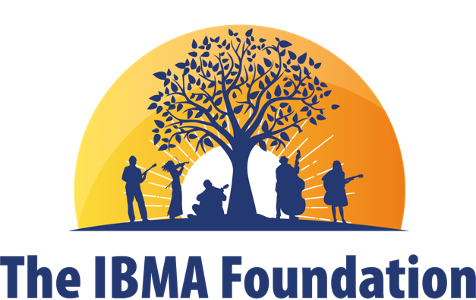One short year ago, in the midst of the COVID-19 pandemic, a group email conversation among Leadership Bluegrass alumni led to an idea voiced by James Reams, followed by a challenge issued by Foundation chair Fred Bartenstein to create a fund that would proactively welcome and encourage more participation in bluegrass music by people of color. The Arnold Shultz Fund was quickly established by the IBMA Foundation, with support rolling in even before we could get out the first press release.
We’ve been pleased and amazed to see more than $72,000 donated to the Shultz Fund as of June 30, 2021, and support continues to grow. The first round of grants, totaling $12,050, was announced in March 2021. A second round of grants will be issued next year (deadline to apply is January 31, 2022).
The Shultz Fund has been blessed with good leadership from advisory committee cochairs Richard S. Brown, DMD, and Neil V. Rosenberg, PhD. The other members are Erika Brady, PhD, a folklore professor and author at Western Kentucky University; Sav Sankaran, bass player/singer with Unspoken Tradition; event producer Trisha Tubbs; and Lillian Werbin, CEO and co-owner of Elderly Instruments. Brown is a practicing dentist in Cambridge, MA, who also teaches at the Harvard University School of Dental Medicine and performs with his wife, Margaret Gerteis, in the Reunion Band. He is a nationally known mandolinist in the style of Bill Monroe and a popular workshop instructor. He cofounded the Boston Bluegrass Union in 1976 and still maintains a connection with that organization as well as the Joe Val Bluegrass Festival. Bluegrass Hall of Fame member Neil Rosenberg retired from a teaching career at Memorial University of Newfoundland in Canada. He is a banjo player and an internationally known author and bluegrass historian who currently writes a column for the Bluegrass Situation.
Arnold Shultz (1886 – 1931) was an African American musician from western Kentucky, best known as an extraordinary guitarist and fiddle player who often played guitar with Bill Monroe’s fiddle-playing uncle, Pendleton (“Pen”) Vandiver. It was at these gigs that Monroe met Arnold Shultz and began to emulate Shultz’s backup guitar style. Shultz was impressed enough with Monroe’s progress that he hired Bill to play guitar with him at dances, thereby giving him his first professional music jobs. Arnold Shultz was a mentor to Bill Monroe, who also credited Shultz with influencing his approach to playing music.
The 2021 Shultz grants went to programs and individuals in Alaska, Arizona, California, Kentucky, Louisiana, North Carolina, Tennessee, and Texas. An agency endowment fund was set up at the Community Foundation of Middle Tennessee in Nashville last month to benefit the Arnold Shultz Fund in perpetuity, where it will continue to support programs, scholarships, and individual projects that welcome people of color into the bluegrass music community.
Sizable donations from the Steve Martin Foundation, the Purple Crayon Foundation, and proceeds from a banjo raffle held by the Pisgah Banjo Company got us off to a great start, with dozens more donations of all sizes coming from musicians and fans from around the world.
If you were one of the founding supporters of the Arnold Shultz Fund, we thank you for your generosity. Donations are still gratefully accepted. No administrative fees or other expenses are subtracted from Shultz Fund donations, so all gifts will be used for present and future grants. We look forward to sharing photos and stories about how Shultz Fund grants have been used in future issues of The Cornerstone.
The IBMA Foundation pledges to be a good steward of all donations you send our way: for the Shultz Fund as well as all the rest of our college scholarships, project grants, awards, and mini-grants that help build a brighter future for bluegrass. Together, we make a difference.
–Nancy Cardwell
RETURN to the July 2021 issue of The Cornerstone.


Recent Comments